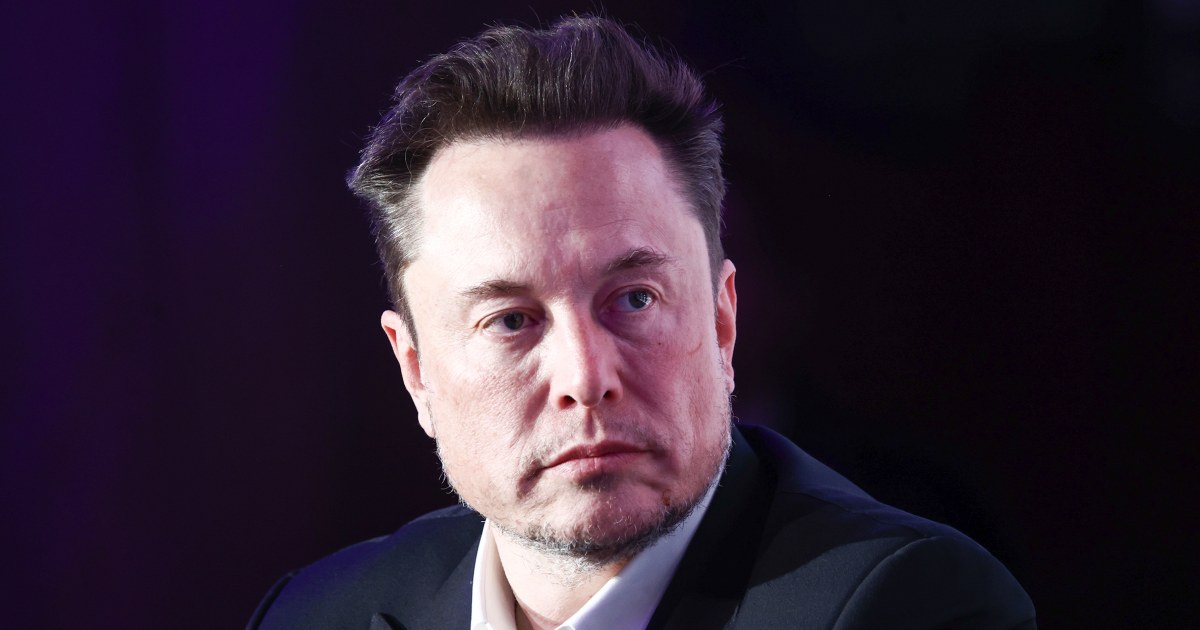Elon Musk tried to bully my organization into silence. The judge’s response was priceless.

United States
Breaking News:
‘Free Scottie!’: Scheffler rebounds to post a spectacular closing round at PGA Championship
Binoculars and batteries: What it’s like covering Trump’s hush money trial
Warrington dismantle Huddersfield to book Challenge Cup final against Wigan
U.S. and Europe Move Closer to Using Russian Assets to Help Ukraine
Washington DC
Sunday, May 19, 2024


You may be wondering: What does it feel like to win in court against the world’s second-richest man? To have exposed him as a thin-skinned hypocrite whose shrill cries of being a “free speech absolutist” were obliterated in the first paragraph of a ruling blasting him and his corporation for bringing a case that was transparent in its goal to “punish the Defendants for their speech.”
Well, as the defendants, let me tell you. It feels pretty damn good.
All we were doing was holding up a mirror to Musk’s platform.
Elon Musk and his X Corp. sued the organization I founded and lead, the Center for Countering Digital Hate, for research we did that exposed the scale of hate that exploded on his platform after he took over Twitter. He’s since renamed it X. Through his conduct and his statements, Musk effectively put up the Bat-Signal to hate actors everywhere that his town square was now a safe space for racists, misogynists, homophobes, bigots and spreaders thereof. We at the CCDH quantified how much money that likely had brought to X by studying the new “impressions” statistics he had added to tweets. But really all we were doing was holding up a mirror to Musk’s platform, using our research skills to display the results of his inglorious decisions.
We couldn’t have predicted his next step. Even though social media platforms have taken steps to reduce their transparency in recent months and years. Meta shut down CrowdTangle, a vital tool for researchers. X, meanwhile, has dramatically increased the cost of researcher-specific data access — when it grants access at all. TikTok removed hashtag view data, an important transparency tool. (CCDH has published reports on pro-steroid content targeting teens on TikTok as well as the spread of harmful eating disorder content.) But throughout Musk’s campaign to purportedly protect “free speech” by seeking to silence ours, CCDH has remained quietly confident in the quality and integrity of our research and advocacy.
U.S. District Judge Charles Breyer dismissed the lawsuit against us Monday. In his opinion he wrote, “X Corp.’s motivation in bringing this case is evident. X Corp. has brought this case in order to punish CCDH for CCDH publications that criticized X Corp. — and perhaps in order to dissuade others who might wish to engage in such criticism.”
The judge also wrote, “Although X Corp. accuses CCDH of trying ‘to censor viewpoints that CCDH disagrees with,’ it is X Corp. that demands ‘at least tens of millions of dollars’ in damages — presumably enough to torpedo the operations of a small nonprofit — because of the views expressed in the nonprofit’s publications.”
X said in a statement that it disagreed with Breyer’s ruling and would appeal.
Our aim has always been to alert the world to corporate failures that undermine human rights and civil liberties. And that’s why I’m so pleased that the court this week reaffirmed our fundamental right to research, to speak, to advocate and to hold accountable social media companies for decisions they make behind closed doors. Those decisions affect our kids, our democracy, our fundamental human rights and our civil liberties.
We hope this landmark ruling will embolden public-interest researchers everywhere to continue, and even intensify, their vital work of holding social media companies accountable for the hate and disinformation they host and the harm they cause.
The U.S. is falling behind the rest of the world in ensuring that social media platforms that have such profound impacts on our societies are transparent.
It is now abundantly clear that we need social media transparency laws and online safety legislation to protect the public’s right to know about the platforms that shape so much of our public discourse and democracy. It is deeply ironic that Musk made the most eloquent case ever for statutory transparency rules in his zeal to shut down criticism and transparency into X.
The U.S. is falling behind the rest of the world in ensuring that social media platforms that have such profound impacts on our societies are transparent and are subject to meaningful accountability when they cause harm. As a proud resident of the United States, I’ve always admired the Constitution’s belief in real checks and balances against tyranny.
While in this case the courts prevailed against Musk’s attempt to suppress our First Amendment right to honestly criticize his failings, we must not take it for granted. It is time for his company, and all social media companies, to be subject to the same checks and balances that other industries are rightly subject to.
Otherwise, we will continue to see unaccountable companies that operate outside the reach of our laws inflict harm on our democracy and society and weaponize the courts against their enemies.